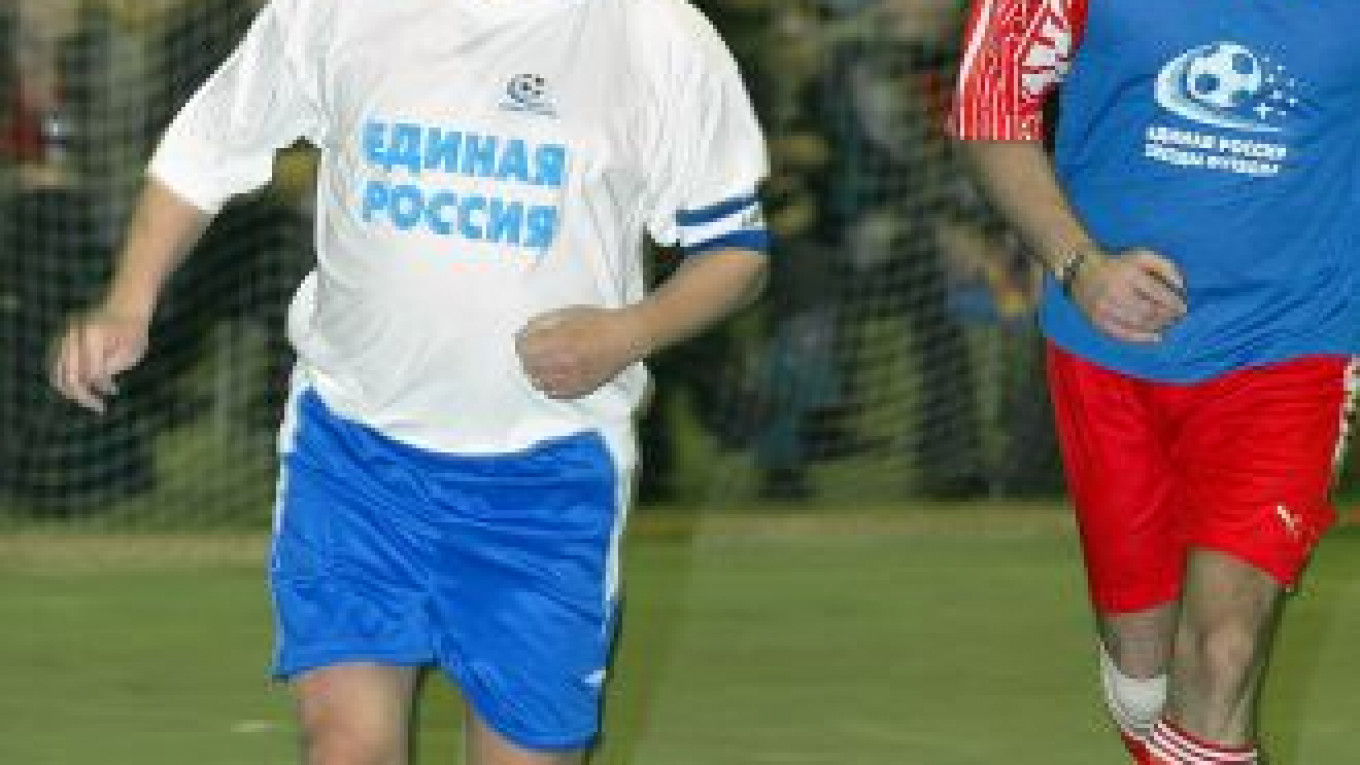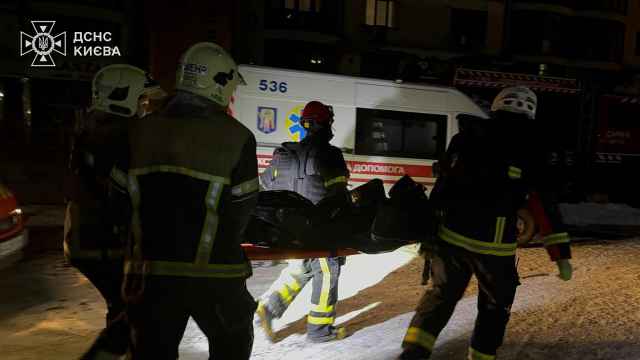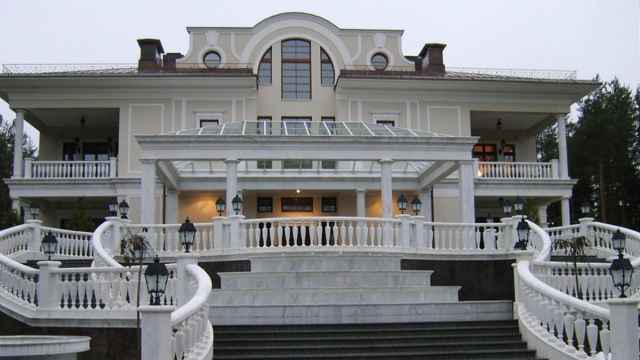Emergency Situations Minister Sergei Shoigu is all but certain to become the next governor of the Moscow region after United Russia named him among three nominees for the post.
The ruling party also proposed candidates for the Saratov and Omsk regions as the Kremlin hurries to make appointments before legislature resurrecting direct gubernatorial elections comes into effect.
Would win
- Oleg Kozhemyako (Amur)
- Rustem Khamitov (Bashkortostan)
- Yevgeny Savchenko (Belgorod)
- Ramzan Kadyrov (Chechnya)
- Mikhail Yurevich (Chelyabinsk)
- Roman Kopin (Chukotka)
- Yunus-Bek Yevkurov (Ingushetia)
- Anatoly Artamonov (Kaluga)
- Vladimir Ilyukhin (Kamchatka)
- Aman Tuleyev (Kemerovo)
- Vyacheslav Gaizer (Komi)
- Nikolai Merkushkin (Mordovia)
- Rustam Minnikhanov (Tatarstan)
- Vladimir Gruzdev (Tula)
- Vladimir Yakushev (Tyumen)
- Alexei Gordeyev (Voronezh)
- Dmitry Kobylkin (Yamal-Nenets Autonomous District)
Likely to win
- Alexander Zhilkin (Astrakhan)
- Nikolai Denin (Bryansk)
- Mikhail Men (Ivanovo)
- Arsen Kanokov (Kabardino-Balkaria)
- Rashid Temrezov (Karachayevo-Cherkessia)
- Alexander Tkachyov (Krasnodar)
- Oleg Korolyov (Lipetsk)
- Sergei Sobyanin (Moscow)
- Valery Shantsev (Nizhny Novgorod)
- Sergei Mitin (Novgorod)
- Yury Berg (Orenburg)
- Vasily Bochkaryov (Penza)
- Georgy Poltavchenko (St. Petersburg)
- Yegor Borisov (Sakha)
- Sholban Kara-ool (Tyva)
- Sergei Morozov (Ulyanovsk)
50-50
- Vyacheslav Shport (Khabarovsk)
- Natalya Komarova (Khanty-Mansiisk)
- Vladimir Artyakov (Samara)
Unlikely to win
- Alexander Karlin (Altai Region)
- Vyacheslav Nagovitsyn (Buryatia)
- Mikhail Ignatyev (Chuvashia)
- Alexander Vinnikov (Jewish Autonomous Region)
- Nikolai Tsukanov (Kaliningrad)
- Alexei Orlov (Kalmykia)
- Viktor Zimin (Khakasia)
- Nikita Belykh (Kirov)
- Lev Kuznetsov (Krasnoyarsk)
- Leonid Markelov (Marii-El)
- Dmitry Dmitriyenko (Murmansk)
- Igor Fyodorov (Nenets Autonomous District)
- Taimuraz Mamsurov (North Ossetia)
- Andrei Turchak (Pskov)
- Vasily Golubev (Rostov)
- Alexander Khoroshavin (Sakhalin)
- Alexander Misharin (Sverdlovsk)
- Andrei Shevelyov (Tver)
Wouldn’t win
- Aslan Tkhakushinov (Adygeya)
- Alexander Berdnikov (Altai Republic)
- Dmitry Mezentsev (Irkutsk)
- Valery Serdyukov (Leningrad)
- Andrei Nelidov (Karelia)
- Igor Slyunyayev (Kostroma)
Oleg Bogomolov (Kurgan)
- Alexander Mikhailov (Kursk)
- Oleg Chirkunov (Perm)
- Valery Gayevsky (Stavropol)
- Nikolai Vinogradov (Vladimir)
- Nikolai Dudov (Magadan)
- Vasily Yurchenko (Novosibirsk)
- Alexander Kozlov (Oryol)
- Oleg Kovalyov (Ryazan)
- Sergei Antufyev (Smolensk)
- Oleg Betin (Tambov)
- Alexander Volkov (Udmurtia)
- Sergei Vakhrukov (Yaroslavl)
- Ravil Geniatulin (Zabaikalye)
*Leaders of Arkhangelsk, Primorye, Tomsk, Volgograd and Vologda are excluded because of their short time in office. Leaders of the Moscow region and Omsk are excluded because they are expected to leave office soon. Saratov is excluded as it is between governors. Dagestan is excluded because the authorities deemed it as too restive for direct elections.
Source: Political Technologies and the Political Expert Group
A new study, meanwhile, suggests that about 25 percent of Kremlin-installed governors would not win in direct elections.
Shoigu's rivals for the gubernatorial post are much lower-ranked state officials, including Deputy Governor Igor Parkhomenko and the mayor of the Moscow region town of Reutov, Alexander Khodyrev.
President Dmitry Medvedev has 10 days to appoint one of the trio or choose an alternative for rubber-stamp confirmation by the Moscow region's legislature. Medvedev has never roundly rejected United Russia nominees, and Shoigu's presence on the ticket makes him a shoo-in because anything less would be seen as insulting.
Incumbent Governor Boris Gromov said last month that he would step down after his term ends in May.
Shoigu, who has served as emergency situations minister for more than 20 years, welcomed his nomination Friday.
"The region is big and interesting. I don't think that I would get bored there," said Shoigu, 55, one of the founding fathers of United Russia and co-chair of its higher council, Interfax reported.
Pavel Salin, an analyst with the Center for Current Politics, a Kremlin-connected think tank, said that for Shoigu, the governorship would be "more a change of a place than a challenge."
"He has been a minister for 20 years, and the Cabinet is on the eve of a reshuffle," Salin said by telephone Sunday.
He said Shoigu knows how to resolve domestic issues because his ministry dealt with them repeatedly during emergency operations. "He had only two choices — to go to the Far East or to stay in Moscow, and he chose the second option," Salin said, referring to early speculations that Shoigu might become the head of a state corporation to develop the Far East.
Shoigu is the most popular minister in the Cabinet, with a 70 percent approval , according to a national survey by the state-run VTsIOM pollster last year. The survey did not include Prime Minister Vladimir Putin.
It was unclear who would replace Shoigu in the Cabinet if he were to govern the Moscow region.
Salin, citing his own information, said Shoigu would be allowed to choose his own successor at the ministry.
All eyes are on gubernatorial elections after President Dmitry Medvedev promised to restore them amid mass protests about falsified results in State Duma and presidential elections. President-elect Putin, who has been vilified by the protesters, abolished the elections in the fall of 2004 over what he described as unfair local elections and the need to reassert Kremlin control over the regions.
Medvedev is expected to sign the new legislation into law before he leaves office next month.
But in a sign of the unpopularity of many Kremlin-appointed governors, about 25 percent of them would be voted out of office under direct elections, according to a joint study by Political Technologies magazine and the Political Expert Group of political analysts.
At least 20 of the country's 83 regional leaders, including the governors of the Leningrad, Vladimir and Yaroslavl regions, would not win in a popular vote, while 17 leaders would inevitably win, including Ramzan Kadyrov of Chechnya and Aman Tuleyev of the Kemerovo region, it said.
Mayor Sergei Sobyanin and new St. Petersburg Governor Georgy Poltavchenko fell into a group of 16 leaders who stood a high chance of being elected, while three governors — from Khabarovsk, Samara and Khanty-Mansiisk — were ranked with a 50-50 chance.
Eighteen governors are unlikely to win, including those from Krasnoyarsk, Kaliningrad and Tver, the study said.
Nine regional leaders were not included in the study for reasons such as their short time in office or, as in the case of Moscow region Governor Gromov, their soon expected departure.
Under the return of direct elections, Putin has insisted that the president retains a say in who runs — primarily through consultations with political parties who field candidates — and this means that the president will to some extent have an impact on who runs, said Alexei Titkov, an analyst with the Institute of Regional Politics.
But voters can expect to see an increase in the number of opposition candidates since public support for Putin is eroding, he said.
It remains unclear whether governors who win on an opposition platform would be able to keep their stance once they take office.
"If an opposition candidate wins, he will be pressed to join United Russia — first amicably, then via a check by law enforcement agencies and then a criminal case," Titkov said. "After that, the issue will not be about keeping his job but his freedom."
On the other hand, "if many opposition-minded winners resist fiercely, there is a good chance that the authorities will leave them in peace until the next elections in order to replace them then," he said.
The earliest direct gubernatorial elections could take place in seven regions in the fall and in seven to nine regions next spring, Titkov said.
A Kremlin source Kommersant last month that the leaders of Belgorod and Bashkortostan would be appointed because the new procedure would not be in place before their terms expired.
On Friday, United Russia also presented nominees to replace Omsk Governor Leonid Polezhayev, 72, who is expected to retire in May.
The nominees include local United Russia lawmaker Alexander Artyomov; the chief federal inspector in Omsk, Alexander Drozhzhin; and Viktor Nazarov, director of the Gazprom Mezhregiongaz Omsk company, a subsidiary of state-run Gazprom.
Medvedev also needs to appoint a governor to Saratov, where unpopular Governor Pavel Ipatov resigned last month. United Russia on Friday offered three candidates: acting Governor Valery Radayev, Deputy Agriculture Minister Alexander Solovyov and the region's chief federal inspector, Alexander Drozhzhin.
The strongest candidates are Nazarov in Omsk and Radayev in Saratov, according to Kommersant.
Alexei Makarkin, an analyst with the Center for Political Technologies, said the Kremlin would also probably try to replace the most unpopular governors before elections. But, he said, it will "not be possible to replace all governors who have a weak level of support, so opposition candidates will win somewhere."
Although consultations with the president will present difficulties for opposition candidates, the president will use this right carefully against candidates who enjoy strong support in their regions, he said, adding that winning opposition candidates would not be forced to join United Russia because it would mean a scandal but "forced to compromise" with the federal authorities.
Even so, an opposition governor would be "more independent now" than before 2004 because of the recent nationwide mass protests against vote fraud, he said.
"Politics is returning," Makarkin said.
Staff writer Alexander Bratersky contributed to this report.
A Message from The Moscow Times:
Dear readers,
We are facing unprecedented challenges. Russia's Prosecutor General's Office has designated The Moscow Times as an "undesirable" organization, criminalizing our work and putting our staff at risk of prosecution. This follows our earlier unjust labeling as a "foreign agent."
These actions are direct attempts to silence independent journalism in Russia. The authorities claim our work "discredits the decisions of the Russian leadership." We see things differently: we strive to provide accurate, unbiased reporting on Russia.
We, the journalists of The Moscow Times, refuse to be silenced. But to continue our work, we need your help.
Your support, no matter how small, makes a world of difference. If you can, please support us monthly starting from just $2. It's quick to set up, and every contribution makes a significant impact.
By supporting The Moscow Times, you're defending open, independent journalism in the face of repression. Thank you for standing with us.
Remind me later.






